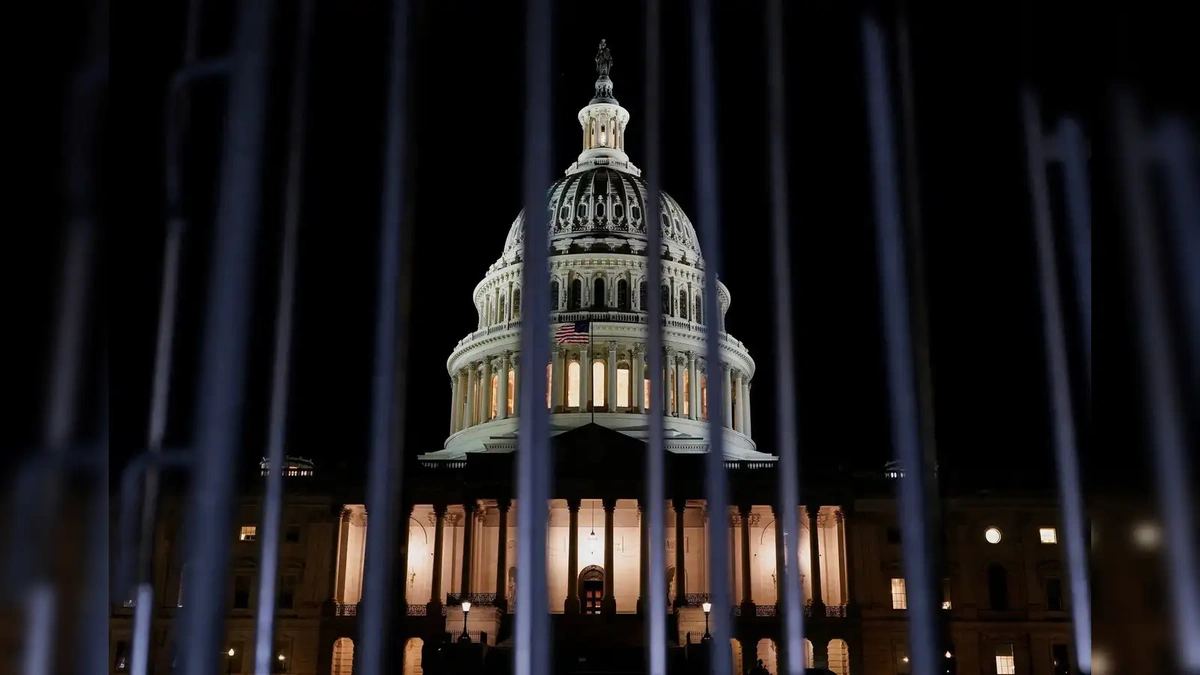Okay, let’s be real. A government shutdown ? It sounds like something out of a dystopian novel, right? But it happened. In 2025, the U.S. government ground to a halt, and not for the first time in recent memory. But why? That’s the question everyone was asking. It wasn’t just about missed paychecks for federal employees or closed national parks; it was about something deeper – a fundamental clash in ideologies and political strategies. Let’s unpack it.
The Core Conflict | Budget Battles and Beyond

At its heart, the 2025 federal government shutdown stemmed from a failure to agree on a budget. But it wasn’t just a budget disagreement. It was a symptom of a much larger disease: political polarization. The two major parties were entrenched in their positions, making compromise seem like a dirty word. Each side had its ‘non-negotiable’ demands, and neither was willing to budge. What fascinates me is how predictable, yet how frustrating, these stalemates have become. And the American people? Stuck in the middle.
The specific sticking points in 2025? You had debates over funding for social programs – things like education and healthcare – versus defense spending. Then there were the culture war issues snuck into the budget negotiations (as always it seems), like restrictions on abortion access or climate change initiatives. These ‘riders,’ as they’re called, often become deal-breakers. According to official congressional records from that time, the debate became intensely partisan. And yet, federal employees were impacted.
Economic Impacts | More Than Just Headlines
So, the government shuts down. Big deal, right? Wrong. The economic repercussions ripple far beyond Washington D.C. We’re talking about a slowdown in economic activity, delays in government services, and a hit to consumer confidence. Federal employees get furloughed, meaning they’re temporarily out of a job – and a paycheck. That impacts their ability to spend, which then affects local businesses. What’s often overlooked is the long-term damage to the country’s reputation. A government shutdown can make the United States look unstable, deterring foreign investment and damaging trade relationships. Let me rephrase that for clarity: it’s not just about the immediate costs; it’s about the future.
And let’s not forget the impact on essential government services. Applications for Social Security benefits get delayed. Passport processing grinds to a halt. Inspections of food and drugs are put on hold. All of this creates real-world problems for everyday Americans. Here’s the thing: the shutdown consequences are never evenly distributed. They disproportionately affect the most vulnerable members of society.
The Political Games | Who Wins, Who Loses?
Ah, the political games. Let’s be honest, government shutdowns are often less about policy and more about power. Each party tries to use the crisis to gain leverage, score political points, and energize their base. They calculate who will be blamed the most and position themselves accordingly. But it’s a dangerous game, because it can easily backfire. The public often sees these shutdowns as petty and self-serving, leading to widespread frustration and disillusionment with the political process. The reality of a government funding crisis is that nobody really ‘wins’.
And what about the long-term effects on political careers? Well, it depends. Sometimes, a politician who stands firm during a shutdown is seen as a principled leader. Other times, they’re seen as an obstructionist. The key is to control the narrative – to convince the public that you’re the one fighting for what’s right. But that’s getting harder and harder to do in an era of social media and 24-hour news cycles. But, the impact on political careers is real.
Preventing Future Shutdowns | Is There a Way Out?
So, can we prevent future government shutdowns? That’s the million-dollar question. Some propose changes to the budget process, like automatic continuing resolutions or stricter deadlines. Others suggest reforms to campaign finance laws, arguing that money fuels political polarization. Still others say the solution is simply to elect more moderate, pragmatic leaders who are willing to compromise. The truth? It’s probably a combination of all of these things.
What fascinates me is that the solutions are often so simple, yet so difficult to implement. It requires a willingness to put the country’s interests ahead of party interests. It requires a commitment to respectful dialogue and good-faith negotiations. And it requires a public that demands better from its elected officials. Until then, we’re likely to see more of these budget impasse scenarios play out again and again. However, we should hold our leaders accountable .
The Real Cost of Political Dysfunction
The shutdown impact on citizens is real and damaging. It erodes trust in government, creates economic uncertainty, and distracts from the important challenges facing the nation. What’s at stake is not just the smooth functioning of government, but the very fabric of our society. And I initially thought this was straightforward, but then I realized the emotional toll this takes on citizens is significant.
Ultimately, the 2025 shutdown serves as a stark reminder of the importance of civic engagement and responsible leadership. We need to hold our elected officials accountable, demand compromise, and work together to build a more functional and prosperous future. The alternative? More shutdowns, more crises, and more disillusionment.
FAQ | Government Shutdown 2025
What exactly triggered the 2025 shutdown?
A failure to reach a consensus on the federal budget, exacerbated by deep political divisions.
How long did the shutdown last?
It lasted for 22 days, impacting numerous government services and employees.
What federal agencies were most affected?
Agencies like the National Park Service, the IRS, and the State Department experienced significant disruptions.
Were federal employees eventually paid for the time they were furloughed?
Yes, Congress eventually passed legislation to provide back pay to federal employees.
Could another government shutdown happen again?
Unfortunately, yes. Without significant changes to the political climate and budget process, future shutdowns remain a possibility.




